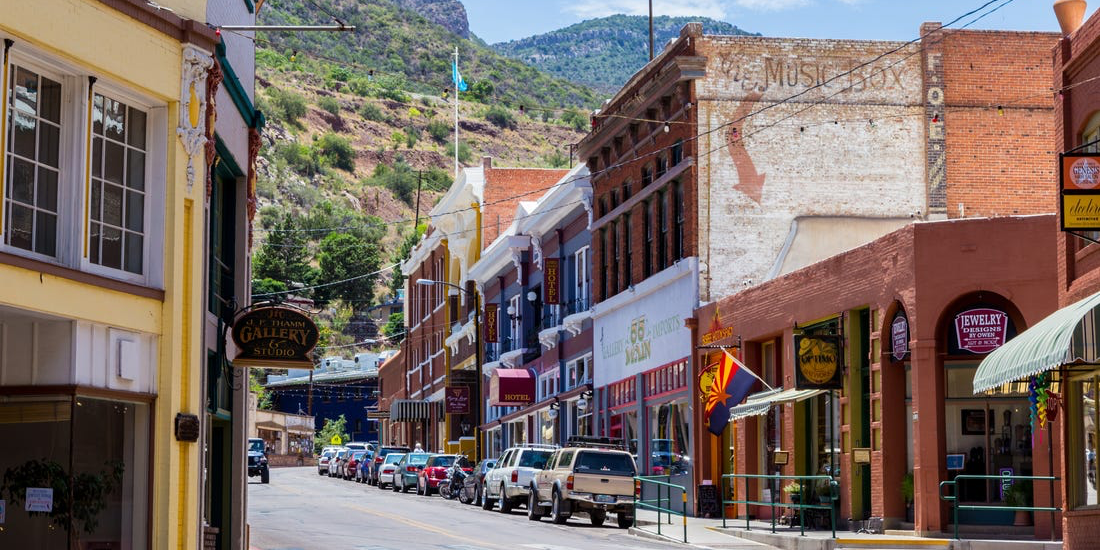I’ve been searching for things to celebrate amid COVID. These days, those victories are few and far between. It’s hard to find any silver lining amid a pandemic, but, recently, I’ve found reason to hope; for Rural America, there may be a burst of light on the horizon.
Shelled by the coronavirus and priced out of their apartments, residents are leaving the city in record numbers, settling instead in suburbs, small towns, and hamlets and bringing with them fresh talent and economic growth. Thanks to remote work, employees are trading their urban skylines for wooded hills and a spread of stars, and many are choosing to make the move permanent in a wave that could revitalize rural and small-town America.
Growing up in a Wisconsin town of 3,000, my dream was to run as far from home as I could to a glittering city built atop the salt marches. It didn’t matter which. New York, New Haven, New Orleans the bright lights of the city called to me.
This exodus of young, talented workers from non-urban areas is what is known as the “brain drain,” an absurdly dubbed expression, implying that those who choose to stay never had the brains or wherewithal to escape. It’s this mentality that has been depleting small towns for decades. Since the Industrial Revolution, country kids have left small towns to build a better life in thriving commercial meccas. Farmers became steelworkers in Pittsburgh, meatpackers in Milwaukee, and car manufacturers in Detroit. But, these days, it’s the millennials who are breaking away, flocking to the cities like moths to a flame. For college students, it’s all part of the pipeline.
I’ve seen this get-out-while-you-can attitude firsthand. On my way back from winter break, I split an Uber with three other Yalies, all from small towns scattered across the Midwest. On the ride back, we compared populations (all under 10,000) and our unlikely paths to Yale. But, when I asked if anyone intended to return home, the car went quiet. There was a long pause. “Maybe the Midwest, like Chicago…” someone ventured. It was a simple fact of life. Opportunity, success, the American dream itself lay in the big city. Our small towns were dead-ends. We were the lucky ones—we’d made it out, so why return?
My father returned. He grew up in small-town Wisconsin, was recruited to play college football out East, and eventually bought a house in the Boroughs of New York City. Then, he moved his burgeoning family back home to rural Wisconsin, to a town 30 minutes from the farming community where he grew up. He is what Wendell Berry, the Kentucky farmer-poet, would call a “homecomer,” someone who got out, spent time exploring the greater world, and then, by choice, returned home. For Berry, these are the real heroes of rural America—not the ones who made it out, but the ones who returned and fought for the places and people that they loved deep in their bones.
Frank Lloyd Wright believed that technology could flatten the world. He dreamed of building his Usonian cities—combining the opportunities of the city with the spaciousness of a small town—and decentralizing the monster metropolises that had “become the focal point of all regional advantages.” Technology—telephones, radios, automobiles (wifi wouldn’t come for another 40 years)—he believed, would free us from the city’s tethers.
Wright never achieved his vision, but he recognized a latent longing. According to a Gallup poll, the majority of urbanites would prefer to live in a rural area. In the survey, respondents ranked the type of community they’d prefer to live in if they had the option to go anywhere. The majority chose a rural area. Big-city living isn’t the dream after all. In the long run, the coronavirus-induced exodus may not be a bad thing. Perhaps, COVID hasn’t pushed people out. Perhaps, it’s liberated them.
For the newly arrived transplants, I’m here to testify that rural life can be enriching. You have a name in town, a voice, volition, and often, especially in Midwestern states, a vote that counts. So, don’t write off small towns. They just may be our salvation—and we, theirs.

